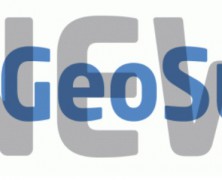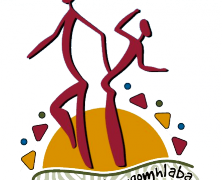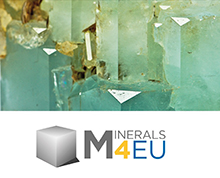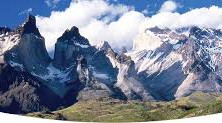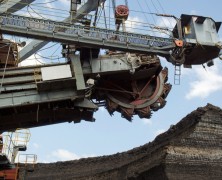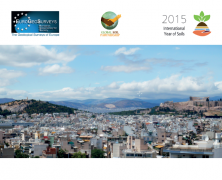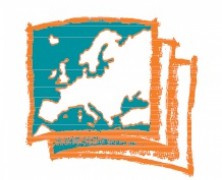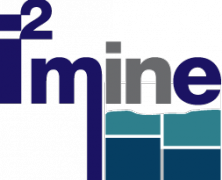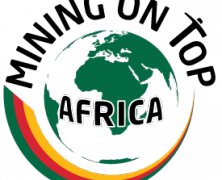The conference “Unconventional hydrocarbons (UHC) – The Polish experience in the European dimension”, organized by the Polish Geological Institute, focused on providing experts with insights and analysis about the Polish experience with Unconventional hydrocarbons and how this experience may help to provide valuable direction for the future of the Energy Union. Mr. Verbruggen, President of EuroGeoSurveys (The Geological Surveys of Europe) and Director of the Geological Survey of Ireland, was invited to be part of the High Level Panel of speakers at event. During its presentation, Mr. Verbruggen presented EuroGeoSurveys and its field of action, geosciences research, highlighting how EGS provides unbiased scientific advice to support EU policy makers and society at large. The estimation of shale gas resources in Europe still varies to a large degree since there are no production experiences and very limited exploration, leading to large uncertainties. This is the reason why the EU needs consistent pan-EU data sets and uniform estimation principles. A new EGS project “EUOGA”, in collaboration with the Join Research Centre (JRC) of the European Commission, led by GEUS and TNO, has the aim to mainly fill these “data gaps” by providing a comprehensive overview of current knowledge on Shale Gas potential areas in EU/EGS member countries. The project will develop a database for further collaboration and research. Mr. Brodzinski, Under-Secretary of State and Chief National Geologist of the Ministry of Environment of Poland, gave a talk about UHC in Poland. By producing UHC, viable alternative for imported energy carriers, Poland is improving the country’s energy security and fostering the economic growth, competitiveness and energy efficiency. According to scientific research, it has been demonstrated that UHC are considered as viable alternative for Poland because they are environment-friendly source of energy, potentially feasible, and enhance energy security....
Unconventional hydrocarbons (UHC) – The Polish experience in the European dimension
posted by EuroGeoSurveys
35th International Geological Congress: Geoethical perspectives on meeting the resource needs of future generations
posted by EuroGeoSurveys
...
EU minerals information freely available online – The results of the Minerals4EU Project at the final Conference
posted by EuroGeoSurveys
The final Conference of the Minerals4EU Project took place on the 25th of August in Brussels, at the Royal Belgian Institute of Natural Sciences. The results of the project were presented to stakeholders, including representatives of the minerals industry, governments and EU Institutions. Almost 100 participants took part in the event. Sustainability, interoperability and knowledge are the keywords of Minerals4EU. The Minerals4EU products form together a platform of distribution of information on minerals that benefits the whole of Europe now and in the future. The EU Minerals Knowledge Data Platform allows stakeholders to search, view and acquire standardized geo-resource and related data, freely accessible. The interoperability among countries is guaranteed as the platform is built in the framework of the INSPIRE Directive (Infrastructure for Spatial Information in Europe). For the first time, a European digital Yearbook for Raw Materials is available for consultation online. The Yearbook, which includes 65 commodities from 40 EU and non-EU countries providing a wide range of data never collected before, will be officially presented and launched on the 15th October 2015 in Brussels at the “Raw Materials Diplomacy Dialogue between the EU and the advanced mining countries” event. David Ovadia, Exploitation Manager of the project, illustrated the structure of the Permanent Body that will allow the sustainability of Minerals4EU. As a legal entity under Belgian law, the permanent body will count on a small bureau of skilled staff co-located at EuroGeoSurveys in Brussels, acting as access point to a broader network of members. The bureau will therefore assist the Network in providing data, expertise, etc. Such a structure will assure that the project results will not be lost, but will survive to serve European policy makers, investors, citizens, scientists and tackle the challenges of the minerals industry. Furthermore, the...
IUGS – RFG Workshop in Namibia motivates Policy Action
posted by EuroGeoSurveys
PRESS RELEASE In 2013, the International Union of Geological Sciences (IUGS) launched the Resourcing Future Generations (RFG; https://www.geolsoc.org.uk/~/media/shared/documents/RFG/White%20Paper%20pdf.pdf?la=en) initiative to bring world attention to the challenges of sustaining resource supplies. The RFG initiative includes a diverse group of geoscientists, environmental and social scientists, including economists, drawn from a range of institutions and EuroGeoSurveys with diverse private and public experience in exploration, mining, processing, environmental protection, and sustainable development. During its most recent workshop held in Namibia from the 25th to 30th of July, 2015, the group began by recognising that there are several global-scale challenges facing humanity that are interrelated: (i) climate change; (ii) sustainable development, and (iii) resource adequacy and diversity of supply. Attempts to address climate change and sustainable development necessarily involve resource adequacy, and yet has received minimal global policy consensus. The workshop aimed to develop an expert consensus document to raise the profile of this issue at the highest level of international decision-making. The experts group substantiated the following key premises to develop an action agenda: The 20th century was characterised by massive improvements in living standards for billions of people in the developed world. This improvement was underpinned by a dramatic increase in utilisation of water, energy and mineral resources. However, the mineral resource requirements of humankind need to be met without compromising the ability of future generations to meet their own needs. With projections of further population growth to about 9 billion people by 2050 the worldneeds adequate supplies of mineral raw materials to fulfill the aspirations of this growing population, and to meet targets of sustainable development. During 5 days of sharing research, the experts group focused the development of its policy motivation document on the following key areas requiring action: (i) supply and demand; (ii) the fact that mineral deposits are...
ON-LINE EUROPEAN MINING LEGISLATION TRAINING COURSE
posted by EuroGeoSurveys
This online training course is offered by Illustre Colegio Oficial de Geólogos and is addressed to Mining companies, geologists, mining engineers, mining managers, legislators and regulators and EU Commission officials as well as scholars interested in the mining legislation currently in force in Europe and the incredible variety of its defining factors. The course gives information on mining legislation covering all the 28 EU members, as well as the accessing countries, and some other European countries which are considered of interest for mining companies. Duration: The training course will have a duration of 200 h, including tutoring and evaluations. Dates: 14th September to 1st November 2015 Direction: Manuel Regueiro y González-Barros, EuroGeol, Honorary Professor of the Dpt of Crystallography & Mineralogy of the Faculty of Geology. University Complutense of Madrid. Total number of credits: approximately 200 For more detailed information and background of the initiative, please visit http://www.icog.es/cursos/index.php/on-line-european-mining-legislation-training-course/ or download the icog.es-ON-LINE EUROPEAN MINING LEGISLATION TRAINING COURSE (1)...
The URGE II – Urban Topsoil Geochemical Mapping Manual
posted by EuroGeoSurveys
The EuroGeoSurveys Geochemistry Expert Group published “URGE II – Urban Topsoil Geochemical Mapping Manual”. The publication presents the agreed field protocol according to which all topsoil samples for the URGE II Project will be collected. The Urban Geochemistry Project (URGE II) aims to provide harmonised geochemical data about the current state of the quality of urban and suburban surface soil in European Union countries for multipurpose use. The results produced from such a survey should be of high quality and integrity, and to be legally defensible as they are very sensitive environmental health related data, because they inform us about the chemical state of our home, school, work and recreational environments, which affects our quality of life. The other objective of the URGE II Project is to compare the geochemical results of the participating European cities. Such a comparison, can be made if all participating cities follow the same sampling, sample preparation, and laboratory analysis procedures. This protocol is presented in the Manual. Subsequently, the samples will be prepared in just one central laboratory, and all topsoil samples will be analysed for the same suite of determinands in the same laboratory following a strict quality control procedure. The URGE II – Urban Topsoil Geochemical Mapping Manual is available for downloading at http://www.eurogeosurveys.org/about-us/our-products/ and on the International Year of Soils website...
A Permanent body: a new solution for the sustainability of the MineralsEU project
posted by EuroGeoSurveys
PRESS RELEASE A Permanent body: a new solution for the sustainability of the MineralsEU project Brussels, 22 June 2015 The final Minerals4EU Stakeholder Workshop was organised on the 17th June, as part of the 8th European Congress on Regional Geoscientific Cartography and Information Systems (EureGeo), held in Barcelona. The Congress was attended by over 150 scientists from all around Europe. Mr Ovadia, the exploitation manager of the Minerals4EU project, opened the workshop highlighting the importance of the project not only because of its contribution to competitiveness in the EU, but also for the number of partners involved, more than 30 participants comprising Geological Surveys, research institutes and industries, who collaborate to make available free and comprehensive data. The overall scope of the project is in support economic development and quality of life, and in doing so, it is necessary not only to harmonise data across borders but also to identify a “place” where industries and researchers can get them. Minerals4EU will be the “one-stop-shop” access point to data, information and knowledge on mineral resources, as part of the European Innovation Partnership of Raw Materials. This is possible through the establishment a network of minerals data providers who make available mineral relevant geo data, set up a yearbook on minerals statistics and provide foresight studies. But what the audience found very interesting and different from most other EU projects is the establishment of a Core Permanent Body that will offer the sustainability of the service beyond the project lifetime, offering public good exploitation facilities via a single bureau, with skilled staff able to respond to requests and, of course, a web portal for technical and scientific information. Mr Ovadia concluded the session inviting all the participants to attend the launch event, where the results of...
8th EureGeo -European Congress on Regional Geoscientific Cartography and Information Systems
posted by EuroGeoSurveys
18th June 2015 It has just ended the 8th European Congress on Regional Geoscientific Cartography and Information Systems (EureGeo), held in Barcelona with the participation of over 150 scientists from all around Europe. The Congress was opened on 15th June by the Directors of the European Regions of Bavaria, Catalonia and Emilia-Romagna, the President of EuroGeoSurveys (EGS) and the Head of Soil Contamination activities of the European Commission DG Joint Research Centre (DG JRC). The importance to provide fast, digital and understandable data to general public, has been the main message of the European Regions, while Mr Koen Verbruggen, President of EuroGeoSurveys, highlighted the necessity to strengthen the collaboration among all the Regions and to work together to solve common problems. Since many years, EGS is working more and more to increase the involvement of the European Regions in the work carried out by National Geological Surveys at EU and global level under the EuroGeoSurveys umbrella. The congress, focused on two main themes Geological 3D Modelling and Soils, has been an opportunity for exchanging ideas and sharing experiences among the participants. As explained by Ana Payà-Pérez, Scientific Projects Officer at the Joint Research Centre, the Regions have a key role in the implementation of the Soil Thematic Strategy and the Road Map to a Resource Efficient Europe; and the congress is an opportunity to present new ways to monitor the state of the soils, as well as new methods and proposals on how to restore degraded soils. The European Commission is making available various forms of financial support through the LIFE programme, Regional Developments Funds and Horizon 2020 to foster collaborations and joint research between institutions in Europe. ...
Towards the Green Mine: I2Mine Project results at AIMS 2015
posted by EuroGeoSurveys
The I2Mine Project results were presented at the Aachen International Mining Symposium (AIMS) 2015, the annual event focused on mineral raw materials supply and mining, held in Aachen, Germany, on the 27th-28th May. With six months until the end of the project, the ambitious goals of I2Mine – proposing the concept of an invisible, low/zero-impact mine as a vision of the future deep intelligent mine – have been successfully fulfilled. But I2Mine is not only a vision. At the Symposium concrete technological innovations developed by the Project partners were presented. Moreover, some of them will be shown live during several demonstration events that will take place over 2015 in different European countries. In particular, there will be demonstrations on the new machinery, integrated mine, machine systems and safety and sensors. A valuable contribution to the Project was presented by Caterpillar, a partner in the I2Mine Consortium, that developed a new cutting-head. This machine presents new features such as the possibility of approaching the rocks from different angles simultaneously and with the development of continuous cutting entry. Another important progress has been made on Health & Safety issues with the launch of the innovative Mobile Rescue Chamber by RWTH Aachen, introducing the innovation elements concerning the outer and inner design of the mobile rescue chamber. The new rescue chamber moves along the underground tunnel in parallel with the excavation progresses. In the scenario of miners being trapped underground, the chamber will always be in close proximity to them. The new design also takes into account the psychological aspects of isolation for long periods (30 days), which has never been considered in the past. On the safety aspects, KGHM Cuprum presented the results of the laboratory tests on rock mass subjected to mining, increasing the safety...
Mining on Top: Africa – London Summit
posted by EuroGeoSurveys
PRESS RELEASE Mining on Top: Africa – London Summit 24th-26th June 2015, Park Plaza Riverbank Hotel, London, UK Mr Verbruggen, President of EuroGeoSurveys (The Geological Surveys of Europe) and Director of the Geological Survey of Ireland, has been invited to be part of the high level panel of speakers in the Africa London Summit ‘Mining on Top’. The conference will be focused on creating a connection between nations, investors and industry leaders to drive economic and social development in Africa through mining. In this framework the key words will be: the importance to invest in infrastructure, the regeneration of Ebola-affected areas, and the political certainty. To face these important topics one of the essential steps is to identify the key market drivers and to understand the future outlook for Africa’s commodities. It is commonly acknowledged that African minerals resources are severely under-exploited, especially because still unexplored or classified, and in this regard Mr Verbruggen will focus on a specific EuroGeoSurveys project, based on the AU–EU geoscientific collaboration, ‘PanAfGeo’. Minerals exploration and mapping is one of the main tasks of Geological Surveys. As Mr Verbruggen will explain during his speech, such information has a huge value, but is extremely difficult to produce as well as the collection, harmonization and sharing of geological map data on the African continent. Mapping geology is not easy. It requires skilled individuals and technical tools that several Geological Surveys in Africa are not able to afford. It is then evident that one of the primary actions to boost development in Africa is to increase the capacities and competence of its geological administrations. The strategy proposed by PanAfGeo focuses on establishing long-term strategic cooperation in the areas of: governance of natural resources, sustainable exploitation of non-energy mineral resources, prevention and mitigation of natural...

